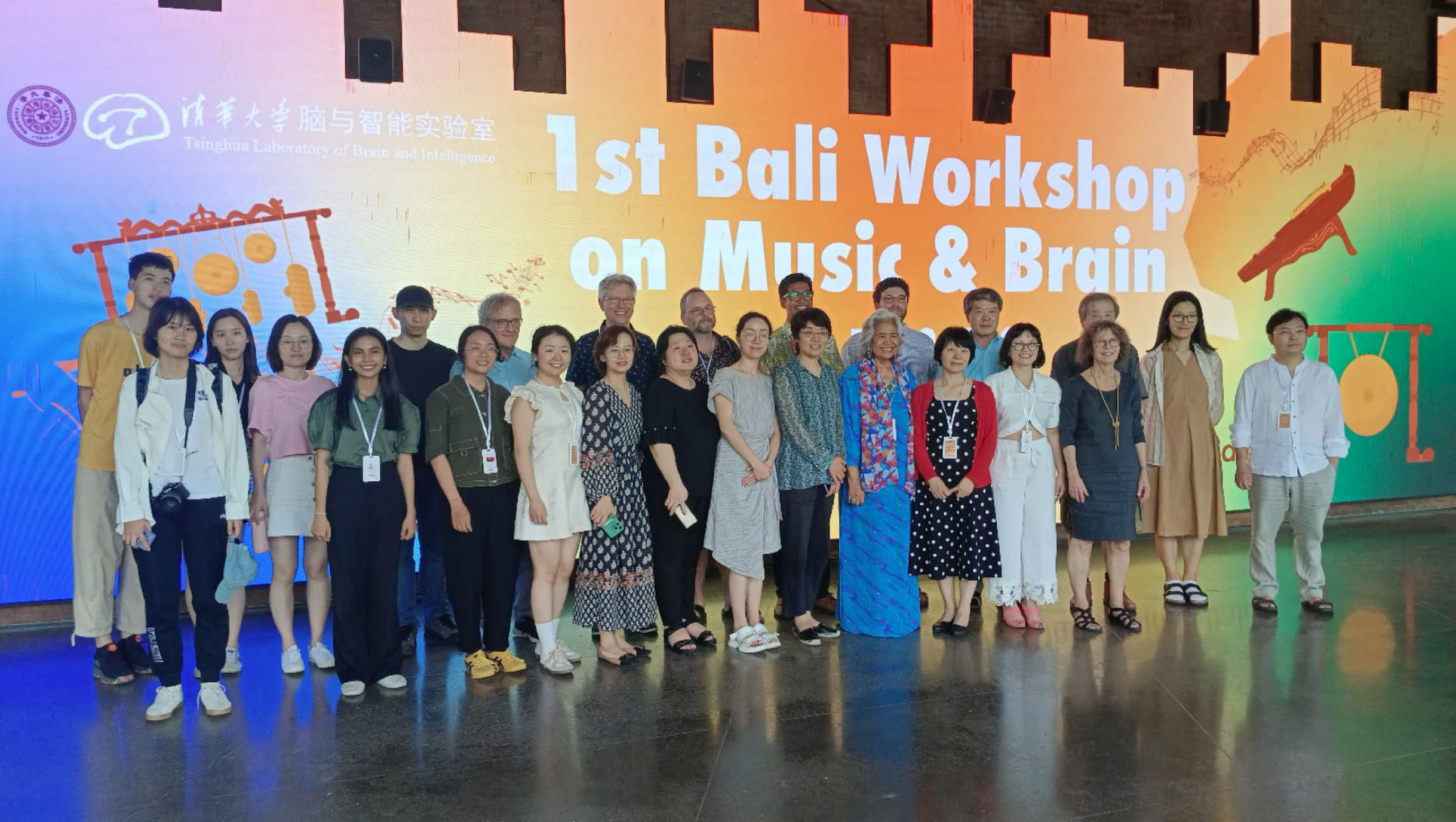
The First Bali Workshop on Music and Brain organized by Tsinghua Laboratory of Brain and Intelligence (THBI) was successfully held at the Tsinghua Southeast Asia Center (Tsinghua SEA) on January 10-12, 2024. Scientists and researchers from the United States, Canada, New Zealand, Indonesia and China gathered at Bali to share the latest research on music and brain, to explore the relationship between music and the brain, intelligence, and health, as well as the application of music in promoting human cognition, and physical and mental health. Local musicians from Bali were also invited to share their practical experience and interact with the participants, so that the participants could gain more cultural inspirations and enhance interaction and communication in the unique cultural background of Bali, laying a foundation for further collaborative research in the field of music and brain in the near future.
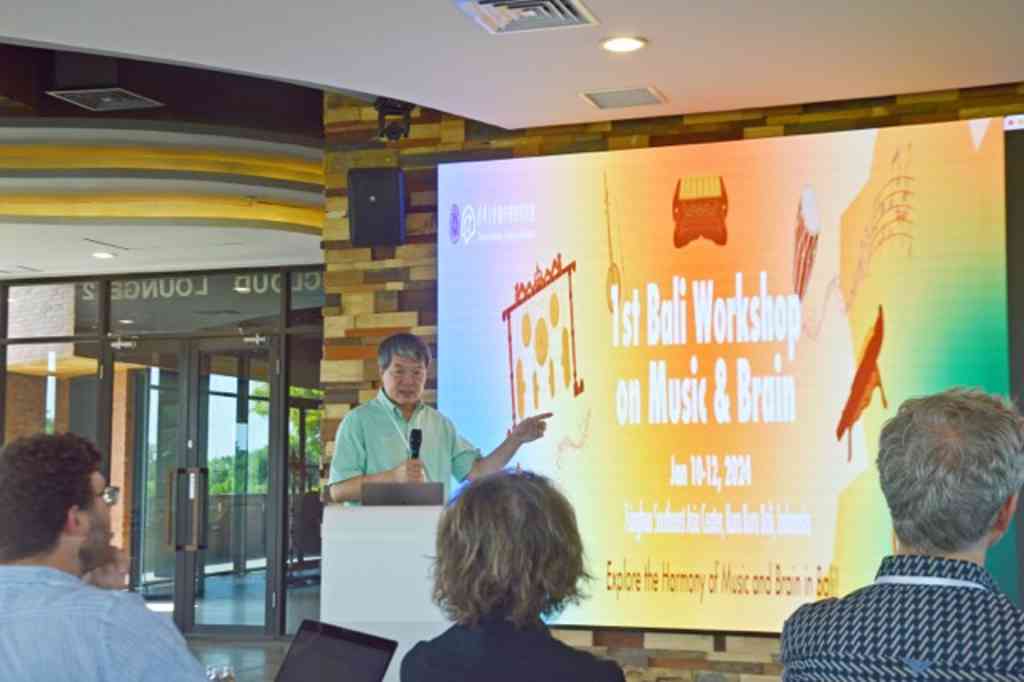
During the workshop, Professor Xiaoqin Wang, Director of THBI, shared the cutting-edge research work done with the marmoset model at the Non-Human Primate Research Center at Tsinghua University. Prof. Wang's research focuses on the neural pathways of hearing and music brain science. He introduced the auditory experiments conducted through marmosets, and specifically described the research on the neural basis of pitch and tone perception in non-human primates.
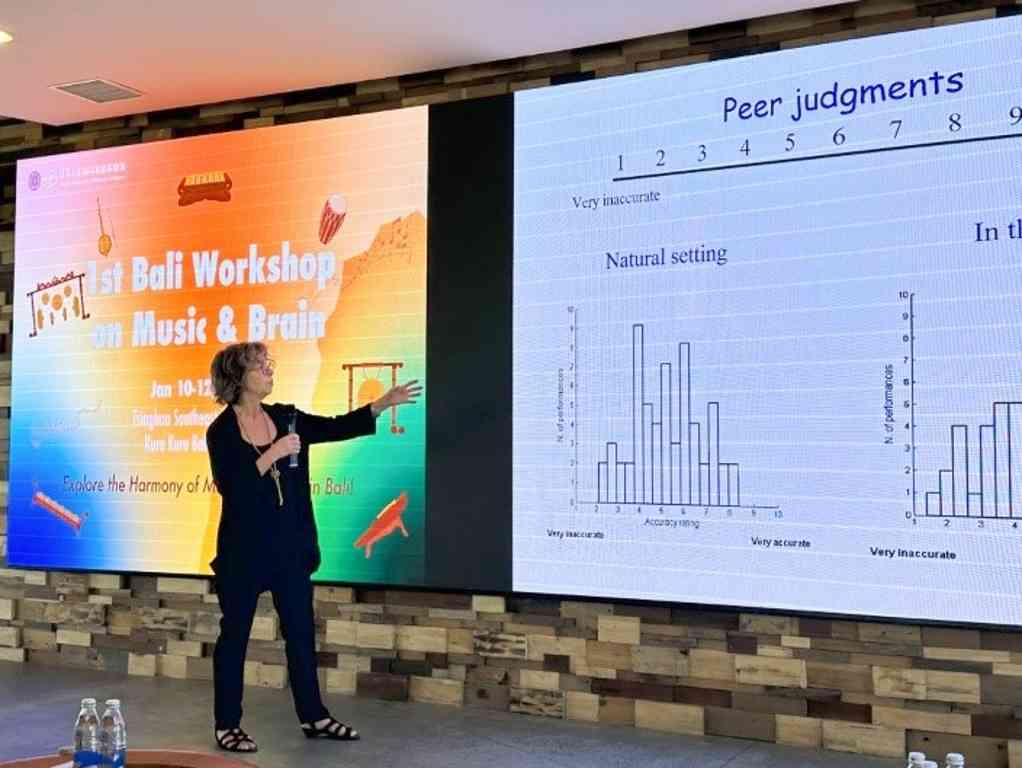
Professor Isabelle Peretz from the University of Montreal, Canada, focuses her research on music cognition and neuromusicology. She shared her research entitled "Singing in the brain". She shared the human cognitive processes of singing, especially the human perception of pitch, tone, and intonation (e.g., why do some people sing out of tune but don't feel it themselves?) She further explored the cognitive basis of these processes in the brain, and suggested that more empirical research is needed on the relevance of singing to human well-being and health.
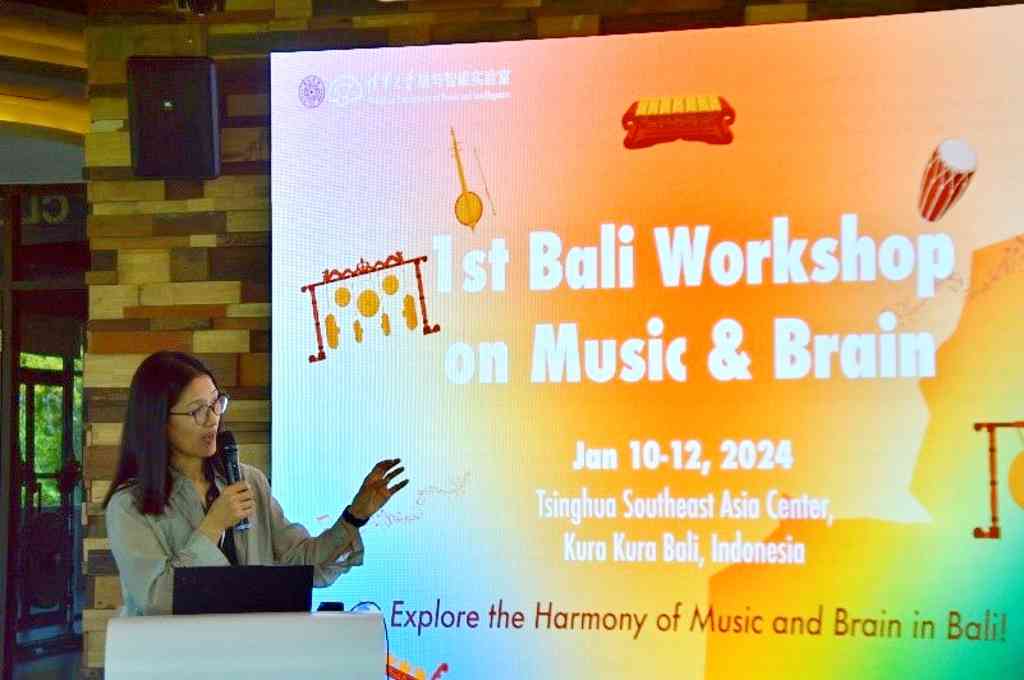
Professor Yun Nan from the National Laboratory of Cognitive Neuroscience and Learning, Beijing Normal University, shared her research titled "Individual Differences in Rhythm Perception during Development: Oscillatory Mechanisms and Clinical Prediction". Starting from the cognitive hypothesis of predictive modeling, she explored the neural pathways underlying human rhythm perception in music and the developmental basis of neural oscillations in this cognitive ability, and further discussed the clinical application of predictive modeling of neural pathways of musical rhythms in children with autism.
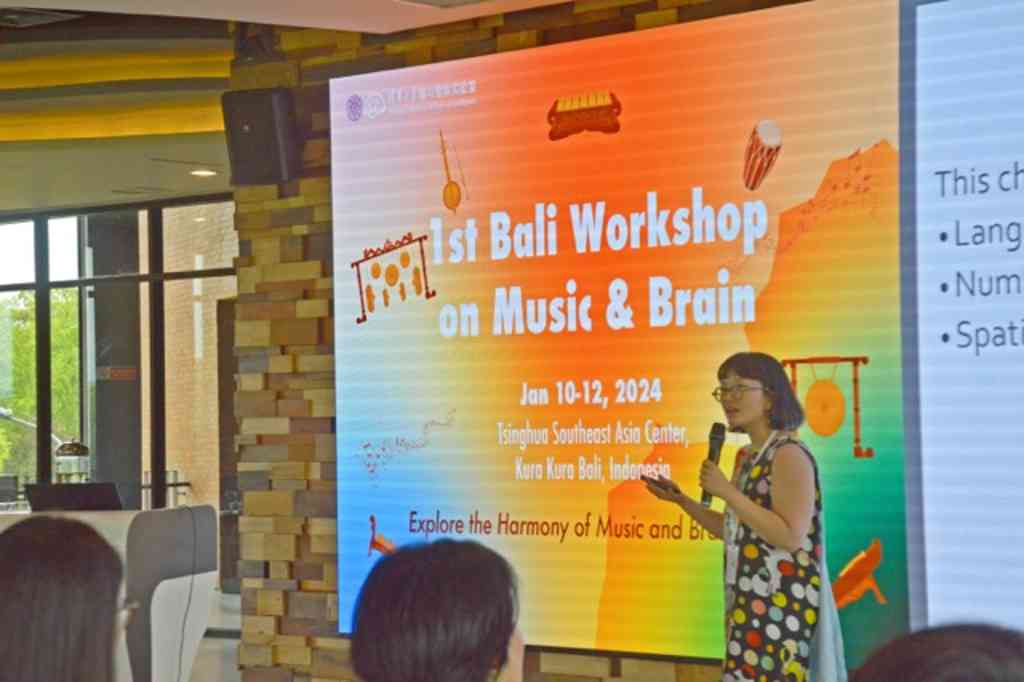
Professor Stella Christie from THBI Child Cognition Center shared the topic of "Learning Relationships in Music". She described in detail how relational thinking has developed in human beings and how music also contains a relationship. She also discussed why some sounds are understood as music from a cognitive developmental perspective and how people recognize sounds as music.
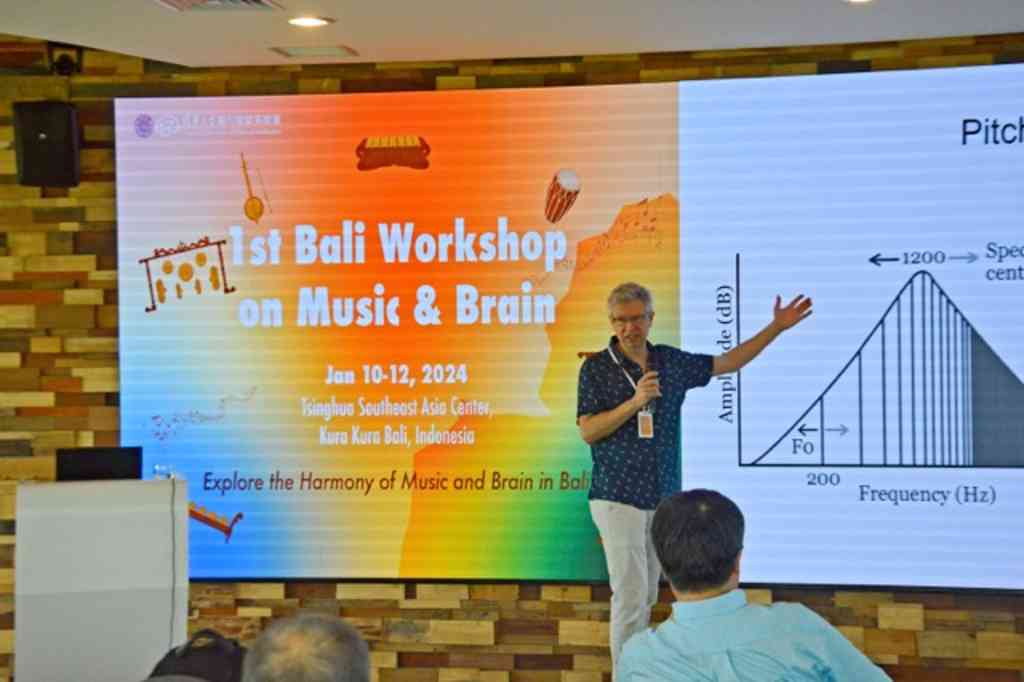
On Jan.11th, Professor Andrew Oxenham from the University of Minnesota gave a talk entitled " Brain Representations and Perceptual Development of Pitch and Timbre". He explored the neural basis of human perception of pitch and timbre in music and found that they are interdependent. He found plasticity in the development of the brain in response to music, and found no significant differences in the neural coding of pitch in humans between musicians and non-musicians.
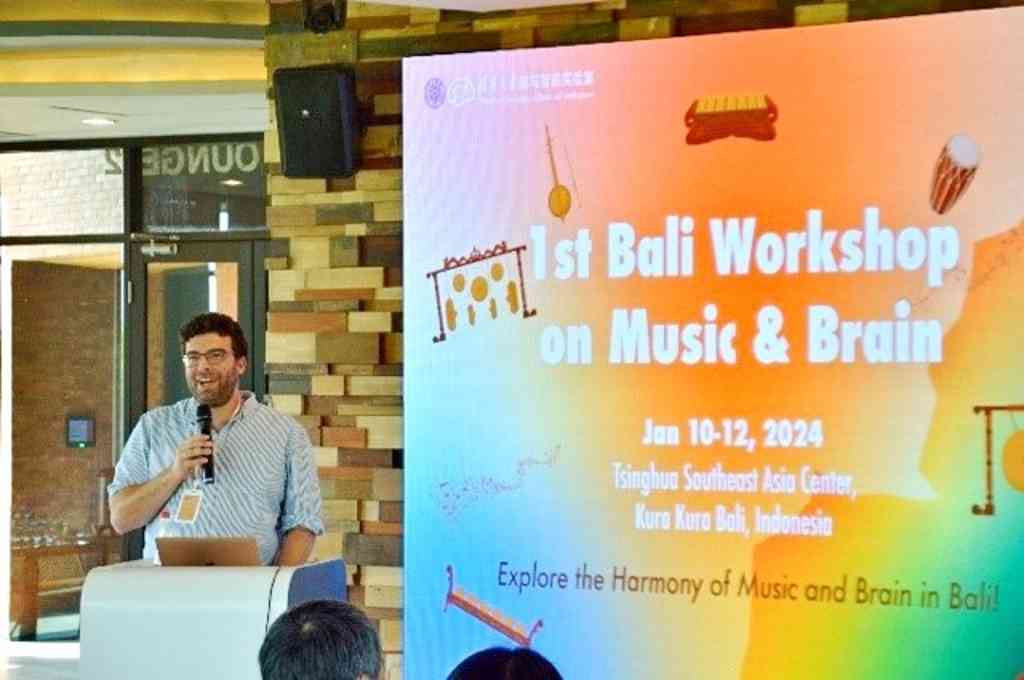
Dr. Samuel Mehr from the University of Auckland, New Zealand, with a sister site at the Yale Child Study Center, USA, gave a presentation entitled "How Music Perception Works". His research focuses on the development of music perception in infants and toddlers, the social interaction properties of music, and the neural basis of cognition. He introduced his Science article on the universality and diversity of human songs and shared his recent research.
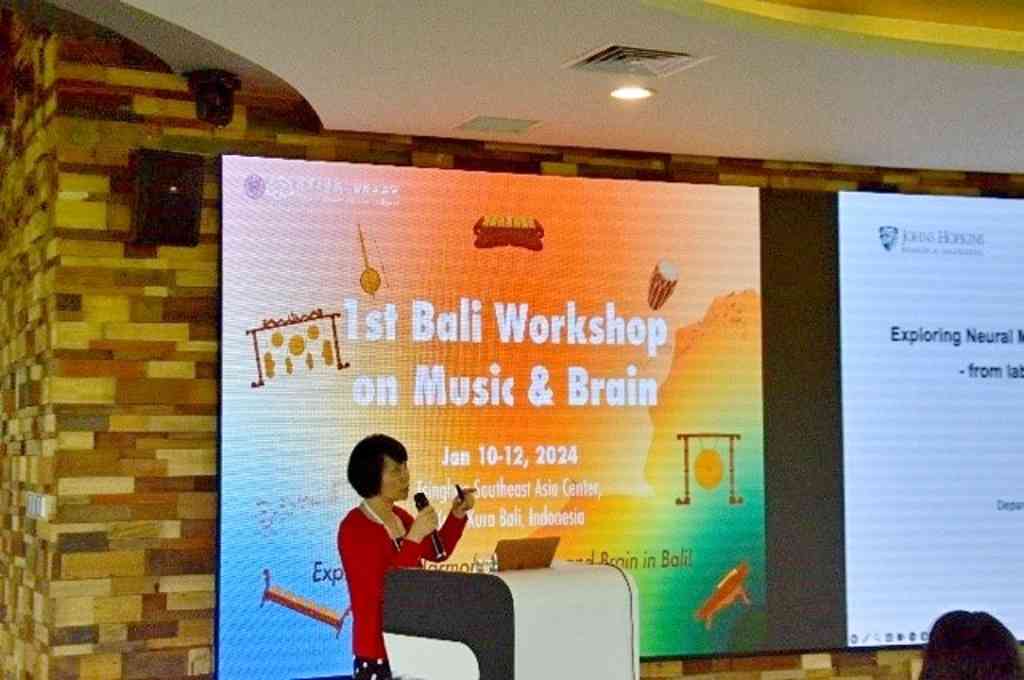
Dr. Juan Huang from the Department of Biomedical Engineering, Johns Hopkins University, USA, shared her research titled "Exploring the Neural Mechanisms of Musical Aesthetics - From the Laboratory to the Concert Hall". She discussed the important role of auditory and tactile integration in music perception and the neural mechanisms of musical memory and musical aesthetics, and suggested the applicability of scientific research paradigms from traditional laboratory settings to natural settings such as live music venues in exploring different levels of questions in music and brain science.
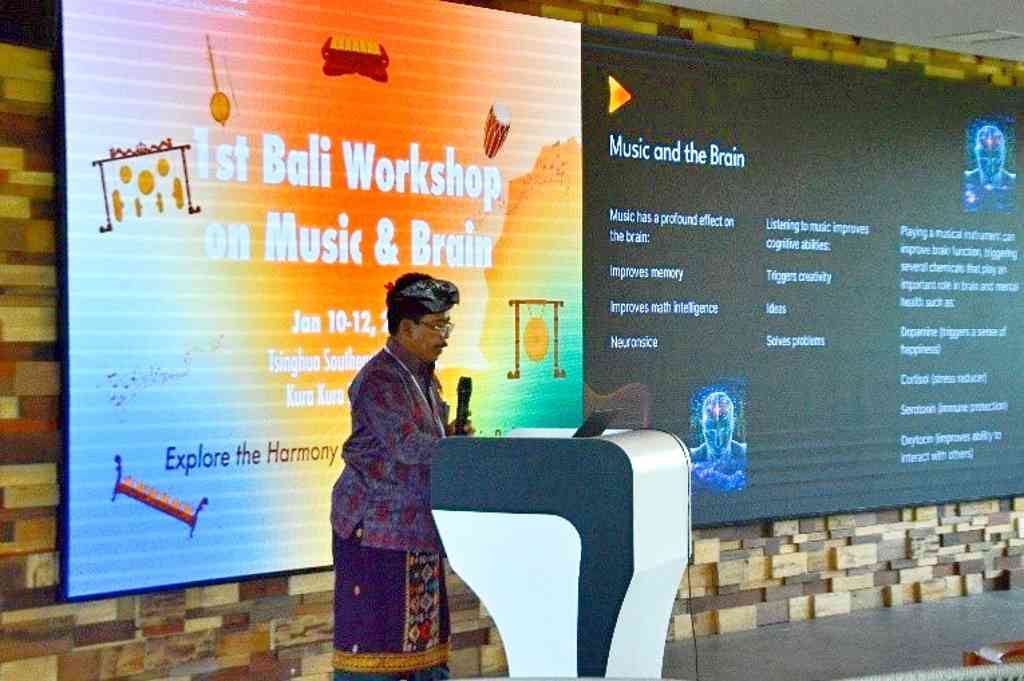
Dr. Komang Sudirga, from Indonesian Art Institute of Denpasar ISI gave a presentation entitled "The Relationship between Music, Intelligence and Health, and the Impact of Music on the Brain, Emotions and Mental Health". He presented the positive effects of music on mental health and the development of human intelligence, and shared with the guests an in-depth presentation of Balinese Gamelan music, which is unique to the island of Bali, Indonesia, and sang a number of verses on the spot.
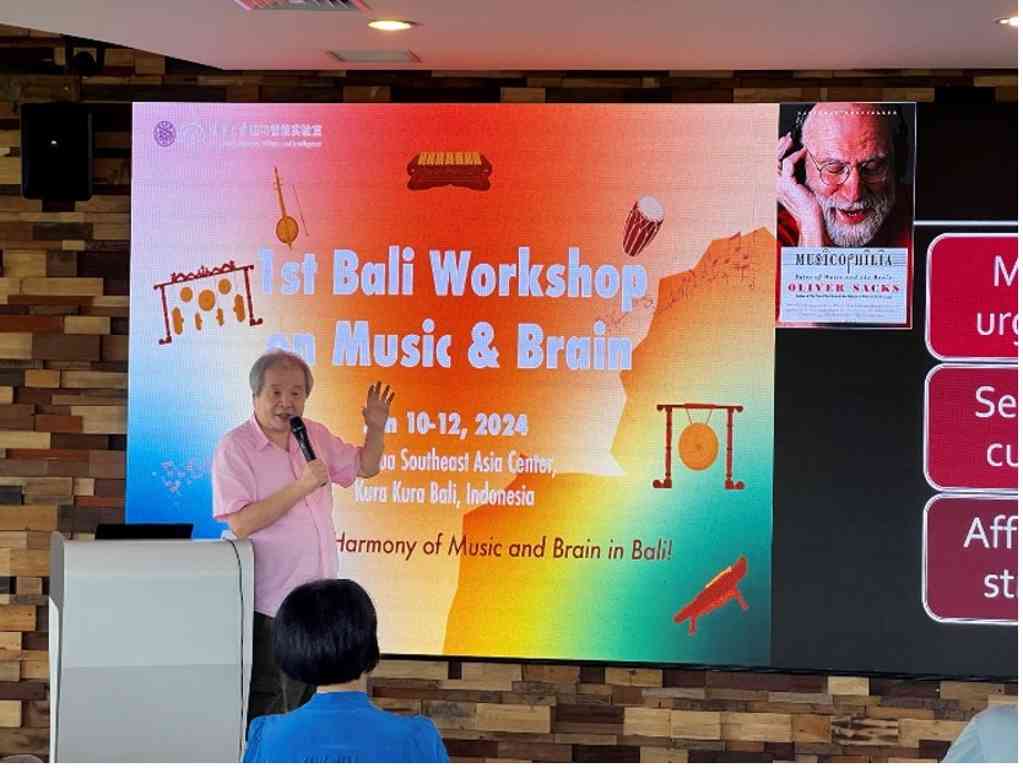
On the third day of the workshop, Prof. Bin Hu from the Department of Clinical Neuroscience, University of Calgary, Canada, gave a presentation entitled "Cultivating and Training a New Generation of Music Therapists through Artificial Intelligence", and shared in detail how "Bu Ge", an active music therapy system, can be effectively applied to the clinical treatment of Parkinson's patients.
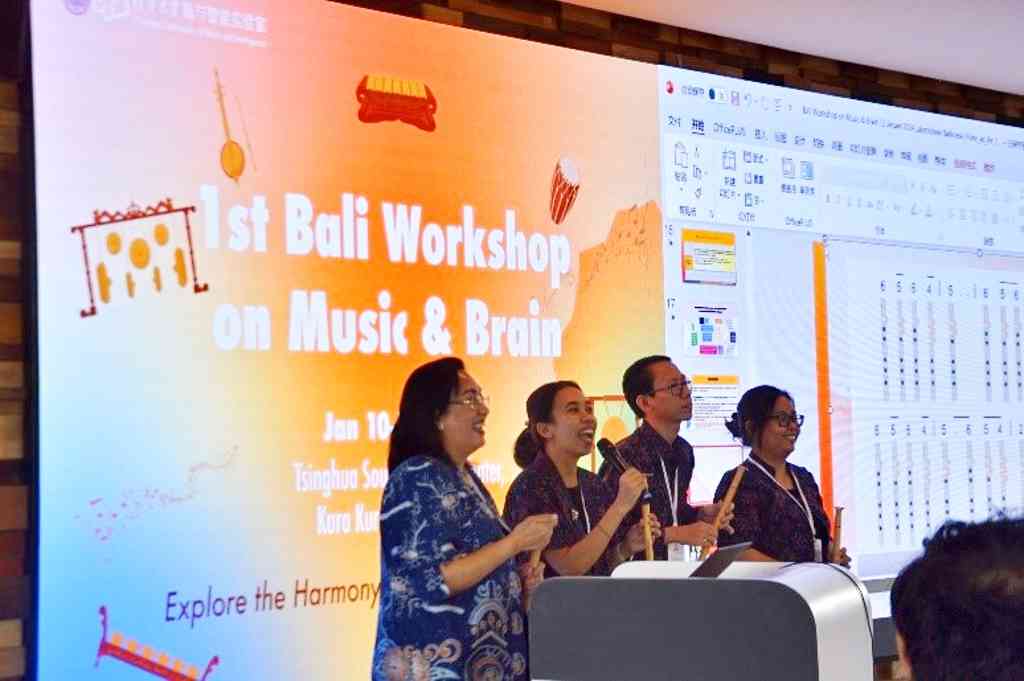
Dr. Putri Laksmidewi, from Udayana University and Prof. dr. I.G.N.G. Ngoerah General Hospital in Indonesia, shared her research on the Balinese flute as an instrumental music to improve cognitive functioning in elderly people. Her research found that using the Balinese flute as music therapy increased brain-derived neurotrophic factor and decreased interleukin-6, thereby maintaining and even enhancing cognitive performance in the aged population.
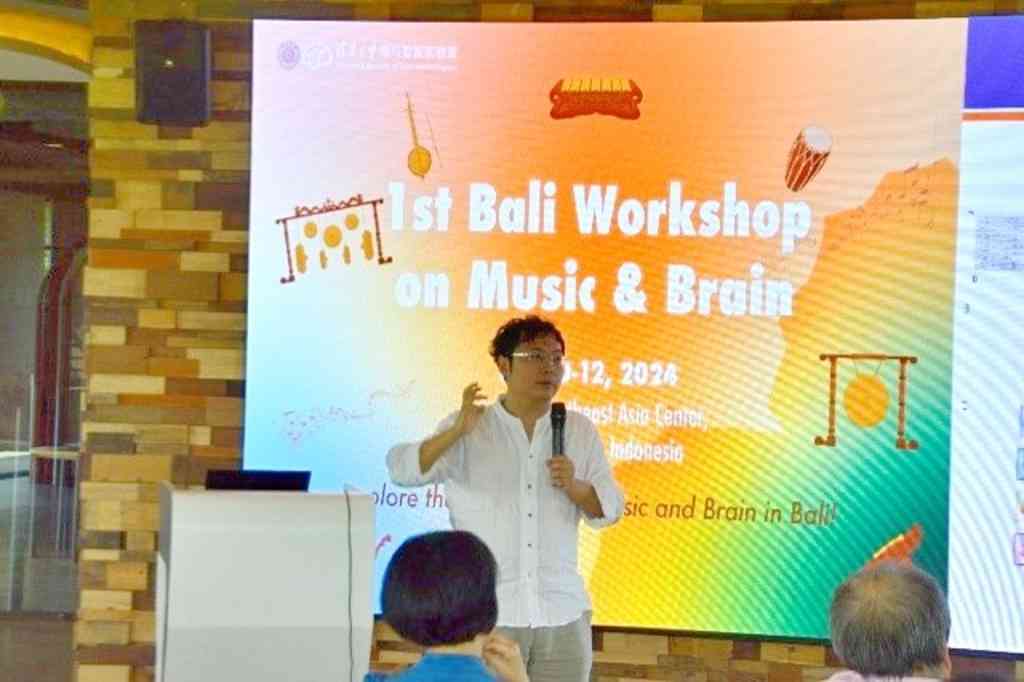
Professor Sen Song from THBI focuses his research on brain-like intelligence, computational neuroscience, and neuroaesthetics. He shared his research entitled " Promoting Positive Emotions and Motivations (Neudamonics)". His research focused on exploring: what is the neural basis of happiness? Why do people feel happy? He elaborated on his collaborative research with Prof. Dan Zhang of the Department of Psychological and Cognitive Sciences, Tsinghua University, on affective computing: based on a machine learning approach, he modeled EEG data when people feel positive and negative emotions, and classified and studied the neural activities of emotions.
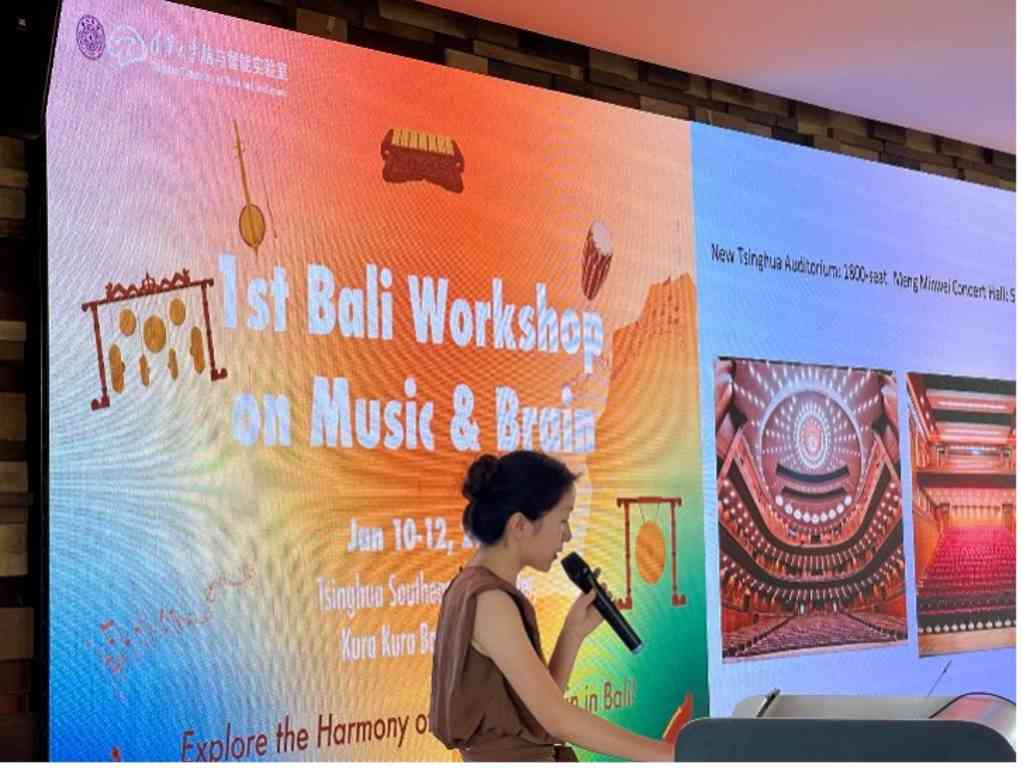
Dr. Yang Miao, from Art Education Center of Tsinghua University, shared with the guests the practices and innovative explorations of Tsinghua's diverse cultural and artistic activities in recent years, based on the high-level facilities and venues such as the Art Education Center, and put forward some new ideas to support collaborative research between music and brain in the future.
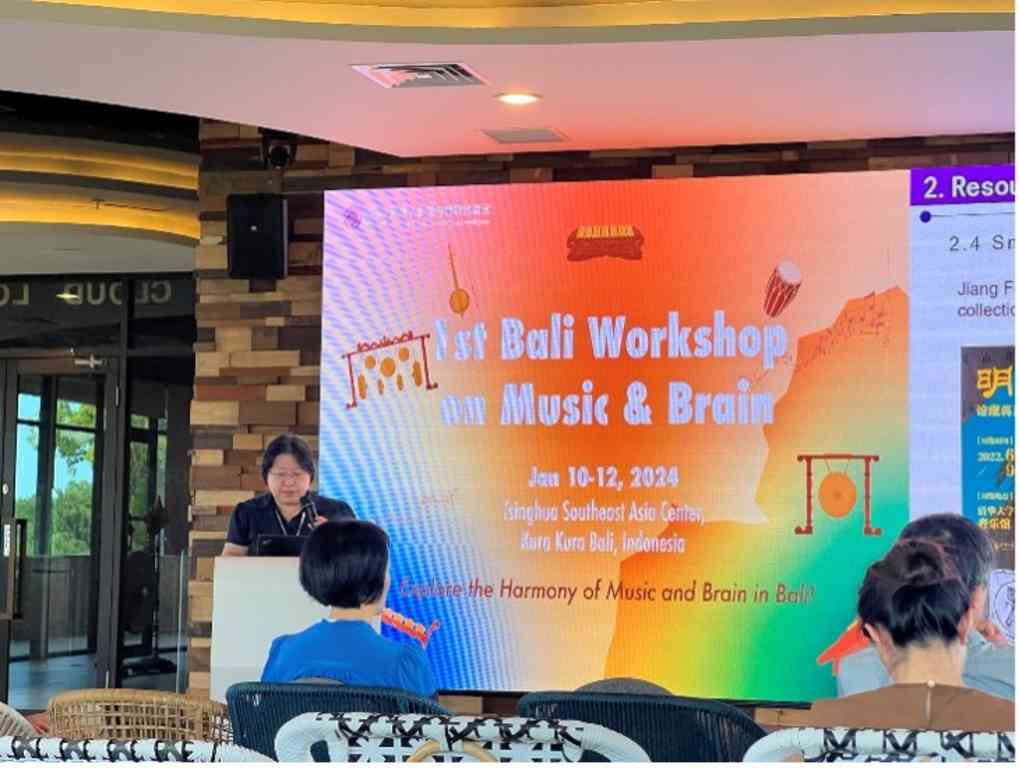
Dr. Kunzhu Zhang is from Tsinghua University Library. She systematically shared the rich music collection of Tsinghua University Library, the advanced hardware facilities and colorful activities of the Music Library.
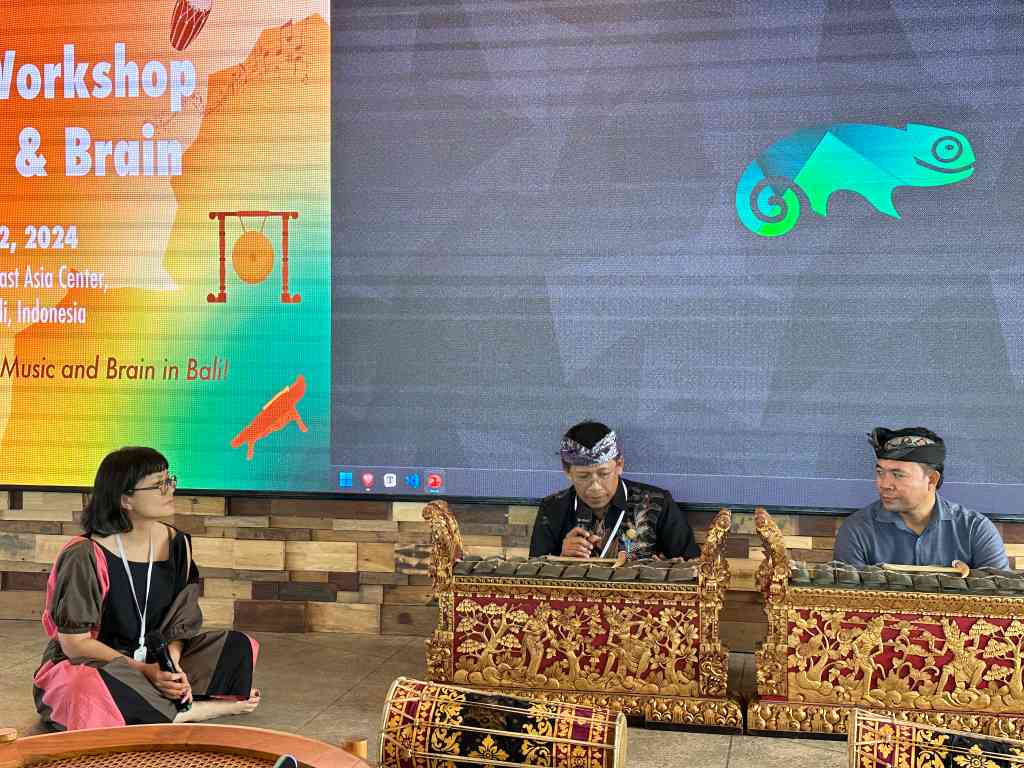
I Ketut Garwa from Indonesian Art Institute of Denpasar ISI, introduced to the participants the origins of the Balinese traditional music of Gamelan in Indonesia as well as the application scenarios, and played the Gamelan instrument live with Balinese Gamelan-playing artists.
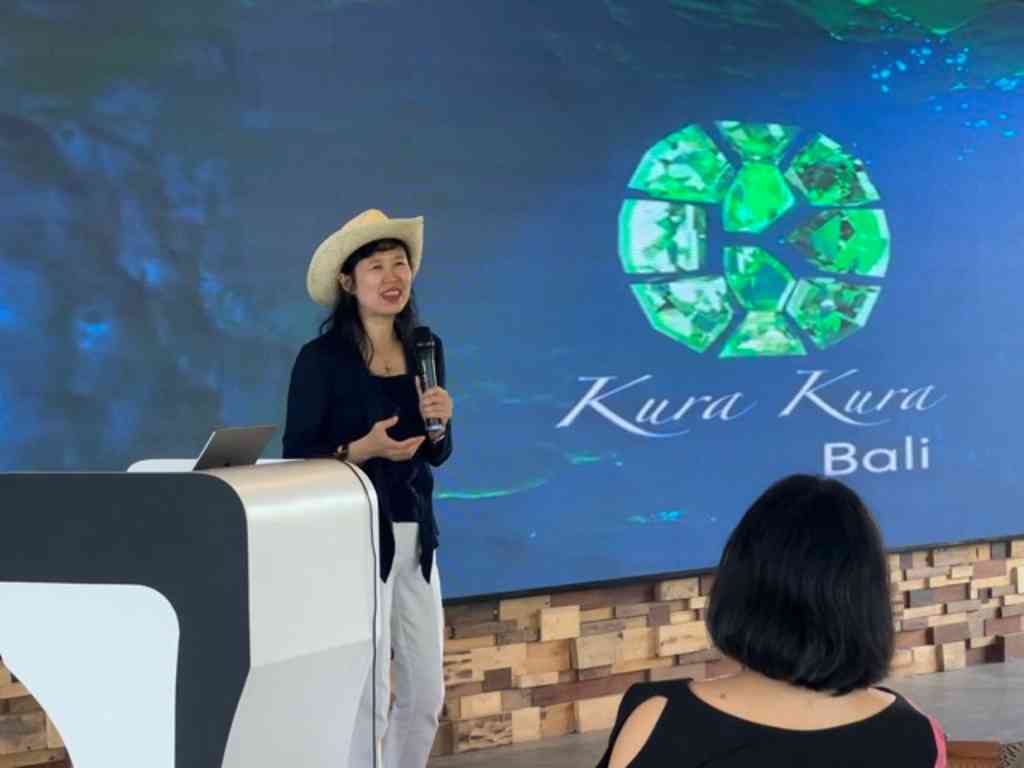
Ms. Meijin Lin, Vice President of the United in Diversity (UID) Foundation, also attended the event and warmly welcomed the scientists who had traveled from all over the world. She shared with the participants the plans for Kura Kura Island, where the Tsinghua SEA is located, and hoped to provide a platform for sustainable development under the idea of "harmony between heaven, earth, people and nature", and to build mutual trust and positive cooperation for a better future.
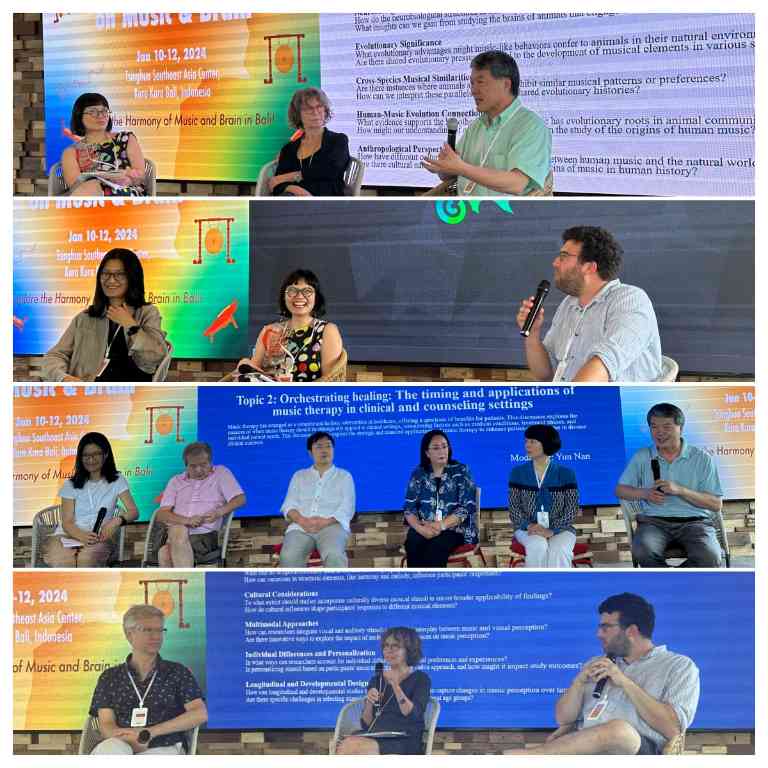
During the workshop, researchers also conducted in-depth discussions on topics such as "Harmony among species: exploring evidence for evolution and origins", "Unraveling the mystery: the development of human music perception", "Optimizing stimulus and test conditions in music perception research", "Exploring the aesthetics of music in concert halls and live performances", and "Timing and application of music therapy in clinical and counseling settings".
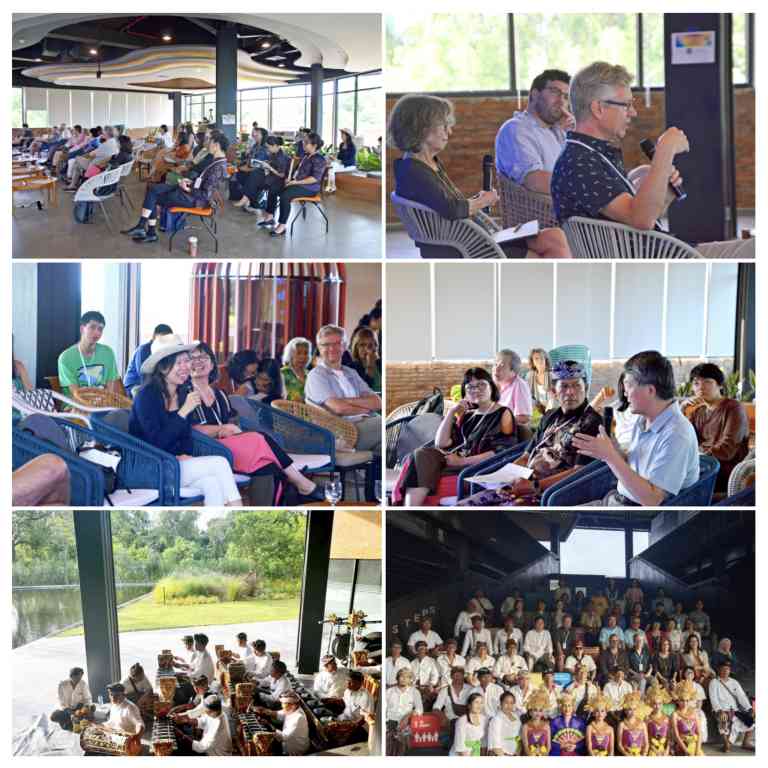
The workshop not only enhances the international influence of THBI in the field of music and brain science, but also opens up new avenues for academic exchanges and cooperation with other countries and regions. THBI will continue to dedicate itself to promoting research progress in related fields and providing more useful insights into human cognition of brain and music.
